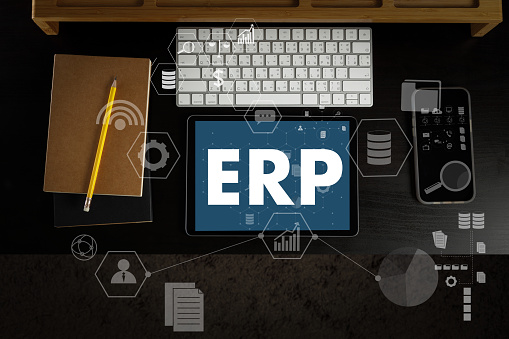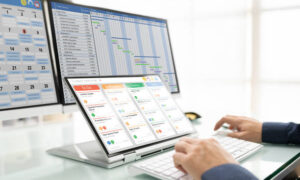The market for software solutions for financial services is very complex. There are Finance and Accounting Management ERP System Saudi Arabia traditional accounting software and expert solutions for consolidation, planning, reporting and analysis (classified under the umbrella term “financial performance management” or FPM).
What Is An ERP System?
The term ERP (for “Enterprise Resource Planning”) encompasses all the applications and software solutions with which all the processes and resources of the company are recorded and controlled. ERP therefore refers to resource planning software whose purpose is to enable optimal use of all available resources within the company and sustainable business growth.
An ERP system records and connects all business processes and therefore affects many areas, such as:
- Purchasing and supply
- Inventory and product management
- Production
- Accounting, finance and management control
- Staff and human resources
- Project management
- Customer Relationship Management
- Marketing and Sales
- Objectives of ERP systems
An ERP system should cover all areas in one system. Ideally, industry-specific processes are also replicated. Used correctly, an ERP system provides management with a complete overview of important aspects of the business. Data is monitored at departmental and enterprise-wide levels. ERP systems facilitate communication and cooperation between departments and allow tasks to be accomplished efficiently and smoothly.
What Does General Accounting Mean?
General or financial accounting is an area of accounting within companies. It records all business processes as financial data and thus brings transparency in the management of expenses and income. Accounts Payable and Accounts Receivable as Forms of Financial Accounting. In general, and especially in large companies, financial accounting is divided into accounts payable and accounts receivable.
Financial Accounting and Its Tasks
The main role of financial accounting is to present the overall result of a business. In other words, it’s about providing a list of financial essentials and tracking their progress. Company management is not the only one who needs information on the amount of profit or loss made. Other important stakeholders make use of it, such as shareholders or creditors. A transparent P&L and balance sheet should build confidence and show how healthy the business is.
What Can Accounting Software Do?
An accounting system is used exclusively by the finance department and focuses on managing a company’s financial functions and transactions, through the performance of:
The focus is on capturing all financial flows. The result of financial accounting is then represented by the annual accounts. This means that at the end of a given accounting period, the accounts are closed with the completion of the balance sheet and the income statement.
Why an ERP System or Accounting Software Is Not Enough for Overall Business Management
What are the decisive differences between a classic ERP system with an accounting module and a global Financial Performance Management (FPM) solution?
Difference #1 between ERP and FPM: The Goal
ERP systems and FPM solutions belong to different worlds. Unlike ERP, which processes transactional data, FPM is located in the decision-making sphere of the information system. While ERP addresses and maps the business processes of all business divisions, an FPM solution serves to better control business processes.
FPM solutions aim to control the overall strategic direction of the business. This is where all important financial data converges (taken from source systems such as ERP and financial accounting) and forms the basis for future decisions regarding business development.
Difference #2 between ERP and FPM: The Scope of Functionality
Instead, ERP solutions focus on traditional functions like inventory management or financial accounting. Budgeting and forecasting, complex financial consolidations, analysis and reporting functions are sometimes available in ERPs, but their application is too complex and therefore inefficient for the user. Financial data is also not sufficiently integrated and only provides a limited view. In general, the planning of financial data in ERP systems is possible, but the focus is usually on operational planning, which is not enough for sustainable business management.
Difference #3 between ERP and FPM: Complexity
ERP frameworks are in many cases exceptionally complex to execute and utilize. It usually takes a lot more time to implement them, connect them to third-party IT systems in the company and to train employees. However, this customization of ERP systems leads to high costs in terms of personnel and time spent, and also makes maintenance more difficult.
Management systems that are going to help your company, you must need it right now Industrial ERP software for equipment rental KSA











































